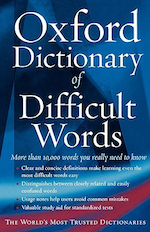In an effort to appear intelligent, people often resort to using convoluted vocabulary and jargon. However, does this aproach work and what motivates us to do so?
Experts are often tempted to sprinkle their language with complex terminology in an attempt to demonstrate their proficiency. Let’s face it, we are all occassionally tempted to showcase our knowledge by incorporating complicated terminology into our communication.
When do we use jargon?
Jargon can be efficient and also serves as a sign of belonging within a particular group or profession. However, a recent study on jargon revealed that it is often utilized as a means of compensating for lower status. Those who perceive themselves to have lower standing are more likely to use a greater amount of jargon. This irony is worth noting.
The effect of complex language on your image
The irony lies in the fact that the use of jargon and other complex language often has the opposite effect. Research conducted by Daniel Oppenheimer explored the impact of complex language on perceptions of intellegence. In a series of five studies ranging from cover letterss to translations of works by Descartes, Oppenheimer examined the complexity of vocabulary in various contexts. Hen then asked individuals to read the text and rate the author’s intelligence.
The results were surprising: the use of simpler language led to higher intelligence scores. Oppenheimer’s publication on the topic titled “Consequences of Erudite Vernacular Utilized Irrespective of Necessity: Problems with using Long Words Needlessly” even demonstrated his own sense of humor.
In short, if you want to come across as intelligent, keep it simple.




